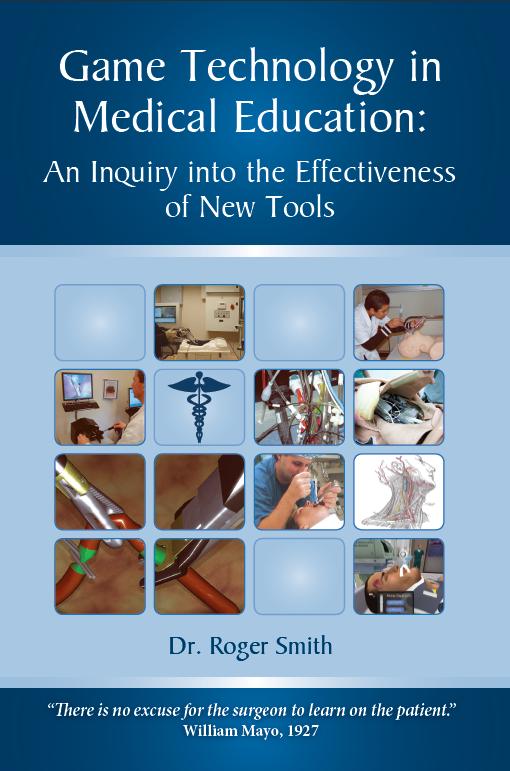Game Technology in Medical Education

This book proposes four hypotheses concerning the impact and acceptance of virtual reality, simulation, and computer game technologies in medical education. It focuses on laparoscopic surgery because of the similarities between that form of surgery and virtual reality systems. The evidence indicates that the following four hypotheses are supported by the medical research literature.
· Hypothesis 1: Surgical training can be accomplished at a lower cost using virtual reality and game technology-based tools than through existing methods of training.
· Hypothesis 2: Virtual reality and game technology-based training environments provide better access to representative patient symptoms and allow more repetitive practice than existing forms of training.
· Hypothesis 3: Virtual reality and game technology-based training environments can reduce the training time required to achieve proficiency in specific procedures.
· Hypothesis 4: Virtual reality and game technology-based training can reduce the number of medical errors caused by residents and surgeons learning to perform new procedures.
The strong evidence collected in this study indicates that game-based systems are becoming much more accepted in medical education and that the technical limitations that existed when these devices were first introduced are being overcome.
Web Page: http://www.modelbenders.com/medsim.html



2 Comments:
Have you read what "Innovator's Prescription" has to say about the future of medical education?
It says that as the Toyota Production System impacts time, cost, and quality with a jump from series to parallel processes, it's suggested that the same will happen for the medical school. Just how science learning and clerkship will merge together remains to be seen. Absent from this dialogue is the "speed to competency" movement gaining ground for medical simulation and certification.
Maybe this is the direction your book is going...
Thanks for launching this blog.
Lance Manning
http://www.linkedin.com/in/lmanning2009
Lance,
This is a very good point. IN my research I found that medical education and certificationw as shifting to a competency-based system, rather than a knowledge-based system. Simulations are a very useful tools in accomplishing this because of their ability to objectively measure performance.
Thank you for contributing.
Roger
Post a Comment
Subscribe to Post Comments [Atom]
<< Home